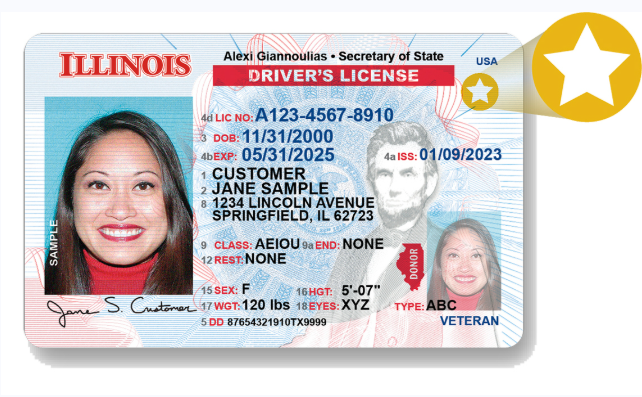Four years after the September 11th attacks, Congress passed THE REAL ID Act, a law that would require state-issued driver’s licenses and identification cards to be compliant with the guidelines set by the Department of Homeland Security. Though the law was established two decades ago, it wasn’t until 2020 that all states began issuing the REAL ID for residents. 1 However, starting May 7th 2025, all U.S. states and territories will require their residents to have a REAL ID to fly domestically, access certain federal facilities like military bases, and enter nuclear power plants.
Below, we list five frequently asked questions about the enforcement of the REAL ID and what is needed to obtain one.
What is the REAL ID?
In 2005, Congress passed THE REAL ID Act, which established minimum security standards for state-issued driver’s licenses and identification cards. It was created in response to the 9/11 attacks to try to prevent any future terrorist attacks against the U.S. While some states began enforcing the Act in the 2010s, all U.S. states became compliant in 2020 and territories as a recent as 2024.
What Happens After the Enforcement Date?
After May 7th, 2025, if you are over the age of 18 and do not have a REAL ID, passport, passport card, or other TSA-accepted identification, you will not be permitted to fly domestically in the United States. This rule will be enforced by the Transportation Security Administration (TSA) at all U.S. airports. If you are traveling by sea on a cruise, the REAL ID is not accepted, and you must have a passport.
If you live in Washington, Michigan, Minnesota, New York, or Vermont, Enhanced Driver’s Licenses (EDL) are considered acceptable alternatives to REAL ID-compliant cards and will also be accepted for official REAL ID purposes.
For more information on acceptable alternative identification at a TSA checkpoint, visit the TSA’s webpage: https://www.tsa.gov/travel/security-screening/identification.
How Do I Get a REAL ID?
You will need to visit your state of residence’s DMV to be issued or renew your REAL ID. In some states, you are able to renew your REAL ID online.
What Documents Will I Need to Bring to My DMV?
The required documents to apply for a REAL ID vary by state. At a minimum, you must provide documentation showing your:
- Full Legal Name
- Date of Birth
- Social Security Number
- Two Proofs of Address of Principal Residence
- Lawful Status
For detailed information on what other documents are required for your state, please check your state’s driver’s licensing agency website before visiting them in person to apply.
How Do I Know if My ID Is Compliant?
REAL ID-compliant cards will have one of the below markings on the upper top portion of the card. If the card does not have one of these markings, it is not a REAL ID-compliant license and can’t be used to board commercial aircraft.

Source: Staff, N. (2021, August 6). REAL ID: What notaries need to know. National Notary Association. https://www.nationalnotary.org/notary-bulletin/blog/2019/03/real-id-what-notaries-need-to-know
Example of a REAL ID card in Illinois

Source: REAL ID. (n.d.). Retrieved April 4, 2025, from https://realid.ilsos.gov/
Final Thoughts
As a reminder, if you would prefer to use a passport, passport card, or other TSA-approved documentation, you are able to do so. However, having a REAL ID can be easier as it fits in your wallet and allows you to fly domestically without having to worry about keeping your passport safe during your trip. To check if you are REAL ID ready, visit the Department of Homeland Security’s REAL ID page.
1. Kim, J. (2022, December 5). REAL ID enforcement is delayed again to 2025. NPR. https://www.npr.org/2022/12/05/1140778386/real-id-enforcement-delayed-2025-immigration-privacy


